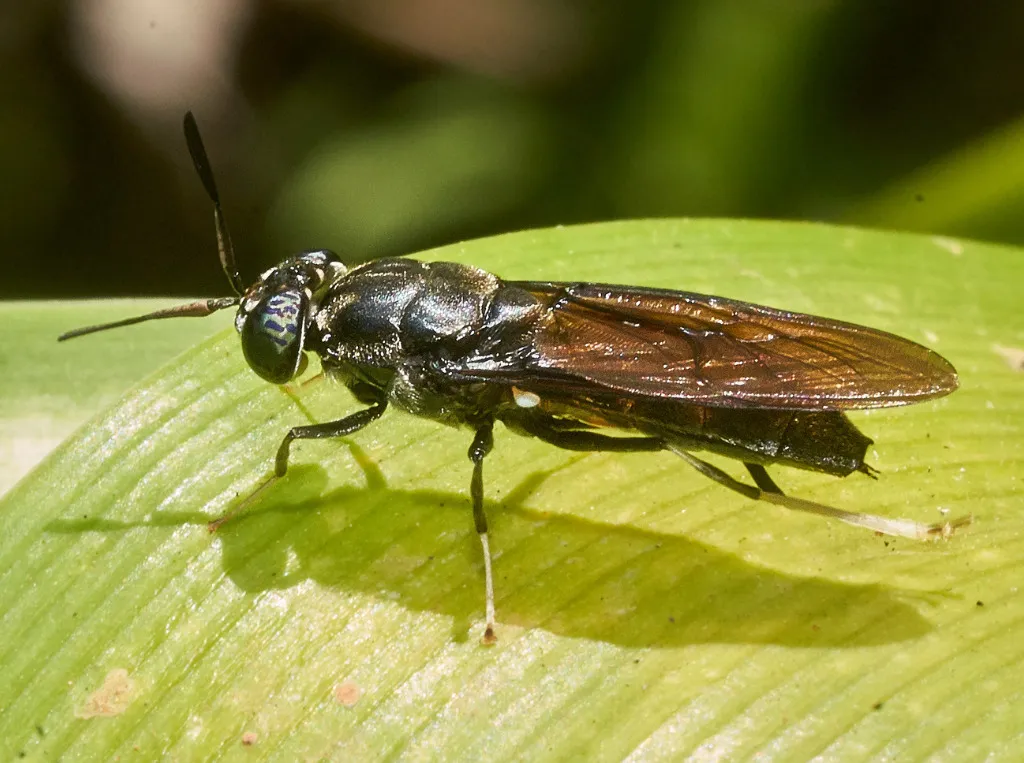In the heart of Bogotá, Colombia, a team of researchers led by K.B. Barragán-Fonseca from the Universidad Nacional de Colombia is shedding light on a burgeoning industry that could revolutionize food production and waste management in the Global South. Their focus? The humble black soldier fly, a tiny powerhouse with the potential to address some of the world’s most pressing sustainability challenges.
The study, published in the journal ‘Animal’ (translated to English as ‘Animal’), delves into the current state of black soldier fly (Hermetia illucens) production in Africa, Asia, and Latin America. The research team surveyed 33 insect producers from these regions, gaining insights into the opportunities and challenges faced by the industry.
The black soldier fly, often overlooked, is a champion of sustainability. It thrives on organic waste, turning it into valuable protein-rich biomass. This process not only addresses waste management issues but also produces a high-quality feed for livestock and a potential food source for humans. “Insects have great potential and can help meet many of the Sustainable Development Goals,” Barragán-Fonseca emphasizes. “They provide essential ecosystem services, which is one of the main reasons producers engage in their production.”
However, the path to a sustainable insect farming industry is not without obstacles. The study highlights significant challenges, including the lack of an adequate regulatory framework, an unstable supply of raw materials, market instability, and a lack of adequate technology for operational scaling. These hurdles are not insurmountable, but they require global collaboration and strategic planning to overcome.
The commercial impacts of this research extend beyond the agricultural sector. The energy sector, for instance, could benefit from the black soldier fly’s waste-to-resource capabilities. As the world seeks sustainable solutions to manage organic waste and reduce greenhouse gas emissions, the black soldier fly could emerge as an unlikely hero.
The study’s findings underscore the need for a strategic assessment of the insect production industry. By identifying strengths, weaknesses, opportunities, and threats, stakeholders can make informed decisions that drive the industry forward. “Global collaboration among all stakeholders is crucial to overcoming these challenges,” Barragán-Fonseca asserts.
As the world grapples with food security and environmental sustainability issues, the black soldier fly offers a glimmer of hope. The research conducted by Barragán-Fonseca and his team not only highlights the potential of this tiny insect but also paves the way for future developments in sustainable agriculture and waste management. The journey towards a sustainable future is complex, but with strategic planning and global collaboration, the black soldier fly could play a pivotal role in shaping a more sustainable world.

